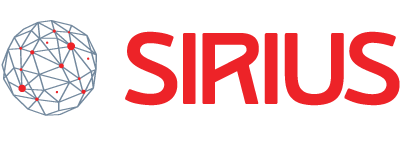Elena Parmiggiani – Bringing Context into SIRIUS

Elena Parmiggiani is an Associate Professor in the Department of Computer Science at NTNU in Trondheim and holds a PhD in Information Systems (IS) from NTNU. She came to Norway almost by accident. When she was growing up in the town of Spilamberto, near Modena in Italy, she wanted to experience living in the Nordic countries. This chance came during her Master’s studies at the University of Modena and Reggio Emilia. Through a connection of her Italian supervisor at KTH in Stockholm, she found a relevant project to participate in for an exchange period. However, it turned out that the project was led by Professor Monica Divitini at NTNU in Trondheim. This brought her to enjoy the winter in Trondheim (down to -27 degrees that year) in 2010 and a project on building a context-based recommender system for new students to learn about a city like Trondheim.
Elena’s primary qualifications are in computer science and the project that brought her to Trondheim used ontologies and semantic technologies. However, she became interested in the user factors and context behind the systems she was working with. Having finished this exchange, she moved back to Italy, but only for a short while. In February 2012 she was employed in Professor Eric Monteiro’s group at NTNU as a PhD student in the Digital Oil project. The condition on the contract was that she learned Norwegian. This happened through a mixture of evening classes and deep immersion through field work in an oil company to study an environmental monitoring project. This resulted in Elena speaking an interesting domain-adapted Norwegian: full of oil and gas technical terms. By 2014 she could conduct field interviews in Norwegian.
Her primary interest is the study of the sociotechnical aspects involved in technology development, implementation and use. Her primary field is Information Systems, with influences from Computer-Supported Collaborative Work and Science and Technology Studies. This required her to learn a new approach to method, theory and language as she moved from pure computer science to sociotechnical studies of technology in practice, which inherit their research methodologies from the social sciences. There are differences in method and approach and it is not straightforward to bring them together. Fortunately, there is a well-established tradition in doing so in Science and Technology Studies. Both of Elena’s external examiners for her PhD worked in this field. One of them, Helena Karasti from the University of Oulu, has become a collaborator. Elena will be spending six months in 2018 working with Professor Karasti in addition to contributing to SIRIUS projects.
In 2017, Elena worked with Eric Monteiro to develop and pilot a course in Digital Service Innovation at NTNU. She is now responsible for teaching the course, which has 40 students this year. The course covers the methods used to digitally transform a business and explores the role of platforms (such as the Apple Store or Schlumberger’s Ocean) in business. She is experimenting with digital service delivery in her teaching. The course uses different teaching approaches, such as frontal lectures, student presentations, interactive quizzes like Kahoot and a new interactive tool called Beekast.
Elena’s role in SIRIUS has been spread over both the exploration and operations work packages. She has contributed to defining the Geological Assistant project. Another project in the exploration work package is with the consortium partner KADME: This work looks at how the data flow and the work flow can be better integrated in an oil company. The main idea in this work is to focus data provenance, or pedigree: Where did this data come from? Is it reliable? Do I trust the source?
The mentoring program has been valuable and enjoyable. Elena’s mentor was Derek Lacey, a senior manager in IBM Norway. She feels that the program has helped her to mature as a researcher, how to handle stress and to be a leader at a later stage in her career. Sessions in the program also raised important issues around work-life balance, communicating across disciplines and handling conflict. In addition, the program resulted in the definition of a collaboration project between IBM, University of Oslo and NTNU around the design and delivery of complex systems for cloud computing.
In her view, the mentoring program is an unprecedented arena for industry-academic collaboration. Perhaps the next version of the program can include training in how researchers can take account of the societal requirements of national and European funding bodies. These organizations require impact from their funding. The definition of impact varies according to local needs and circumstances. It would be instructive to explore this aspect of defining research and career development.


